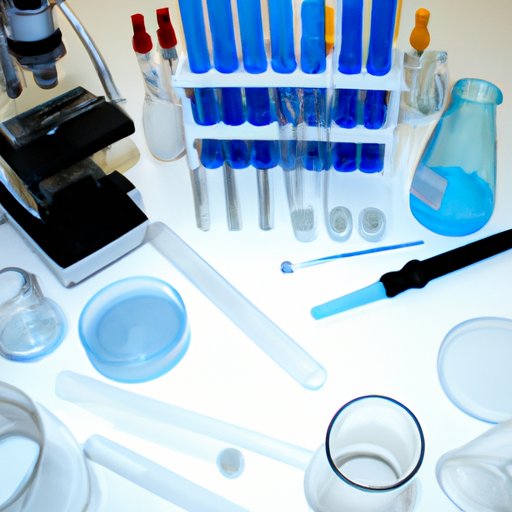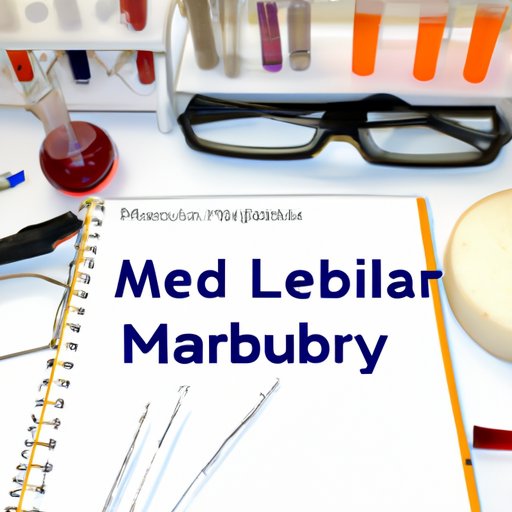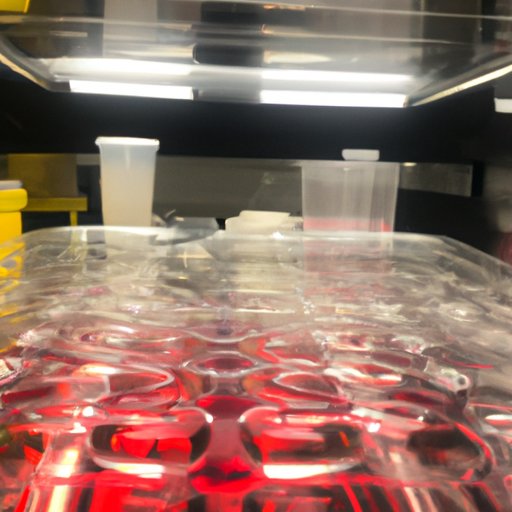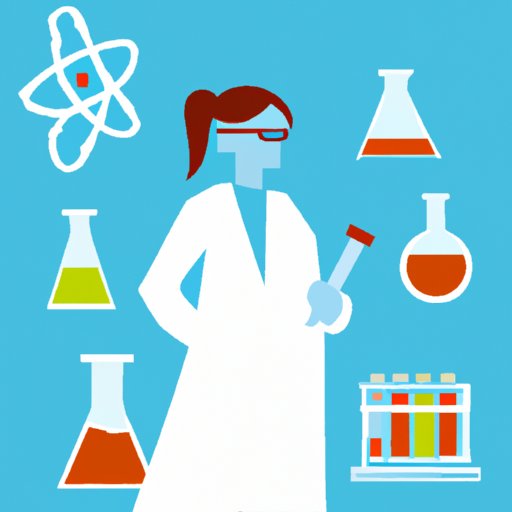Introduction
Medical laboratory science is a field of healthcare that focuses on the diagnosis, treatment, and prevention of disease through the use of laboratory tests. Medical laboratory scientists, often referred to as clinical laboratory scientists or medical technologists, are integral members of the healthcare team who work in laboratories to analyze specimens and perform tests on them. The purpose of this article is to provide an overview of medical laboratory science, exploring the role of the medical laboratory scientist, different career opportunities, educational requirements, and areas of specialization.

An Overview of Medical Laboratory Science
What is Medical Laboratory Science?
Medical laboratory science is a field of healthcare that utilizes laboratory tests to diagnose, treat, and prevent diseases. Medical laboratory scientists are responsible for performing tests on specimens to detect and identify abnormalities, which can help physicians make diagnoses and develop treatment plans. Medical laboratory science involves a wide range of disciplines, including clinical chemistry, hematology, microbiology, immunology, genetics, and cytology.
What Do Medical Laboratory Scientists Do?
Medical laboratory scientists are responsible for a variety of tasks in the laboratory, including collecting and preparing specimens for testing, conducting tests on specimens, interpreting results, and reporting findings. They may also be involved in quality assurance and laboratory management activities. Additionally, medical laboratory scientists may be required to assist with research projects, consult with physicians, and teach other laboratory personnel.
The Role of the Medical Laboratory Scientist
Responsibilities and Duties
Medical laboratory scientists have a variety of responsibilities, including collecting and preparing specimens for testing, analyzing specimens, and interpreting test results. They must also ensure that the specimens are correctly labeled and stored, and they must adhere to safety protocols when handling specimens and chemicals. Additionally, medical laboratory scientists must be familiar with laboratory equipment and be able to troubleshoot any issues that arise.
Current Trends in Medical Laboratory Science
Medical laboratory science is a rapidly evolving field, with new technologies and techniques being developed every day. As such, medical laboratory scientists must stay up to date on the latest trends and advances in the field. For example, many laboratories are now using automation to streamline processes and improve accuracy. Additionally, molecular diagnostics is becoming increasingly important as it allows for the detection of genetic mutations and other abnormalities.
Exploring Career Opportunities in Medical Laboratory Science
Types of Institutions That Hire Medical Laboratory Scientists
Medical laboratory scientists can find employment in a variety of settings, including hospitals, clinics, research laboratories, pharmaceutical companies, public health labs, and government agencies. Additionally, medical laboratory scientists may find employment at universities, where they can teach courses or conduct research.
Benefits of Working as a Medical Laboratory Scientist
Working as a medical laboratory scientist can be both rewarding and challenging. One of the main benefits of working in the field is the opportunity to contribute to patient care by helping diagnose and treat diseases. Additionally, medical laboratory scientists typically enjoy competitive salaries and excellent job security. According to the Bureau of Labor Statistics, the median annual salary for medical laboratory scientists was $51,770 in 2019.

A Look at the Educational Requirements for a Medical Laboratory Scientist
Prerequisites
Most medical laboratory science programs require applicants to have completed a minimum of two years of college coursework prior to admission. Common prerequisites include biology, chemistry, mathematics, and physics. In addition, students must have taken courses in human anatomy and physiology, medical terminology, and computer science.
Degree Programs
The majority of medical laboratory science programs offer a bachelor’s degree in medical laboratory science or a related field. However, some institutions may also offer associate’s degrees or certificate programs. Most programs require students to complete a combination of classroom instruction and hands-on laboratory experience.

Exploring the Different Areas of Specialization Within Medical Laboratory Science
Clinical Chemistry
Clinical chemistry is a branch of medical laboratory science that focuses on the analysis of body fluids and tissues to diagnose, monitor, and treat diseases. Clinical chemists are responsible for performing tests to measure levels of hormones, enzymes, proteins, and other substances in the body. Common tests performed by clinical chemists include blood glucose tests and cholesterol tests.
Hematology
Hematology is a branch of medical laboratory science that focuses on the study of blood and blood-forming organs. Hematologists are responsible for performing tests on blood samples to diagnose, monitor, and treat diseases. Tests performed by hematologists include complete blood counts, coagulation studies, and flow cytometry.
Microbiology
Microbiology is a branch of medical laboratory science that focuses on the study of microorganisms, such as bacteria, viruses, and fungi. Microbiologists are responsible for identifying and characterizing pathogens and determining their susceptibility to antibiotics and other treatments. Tests performed by microbiologists include bacterial cultures and susceptibility testing.
Immunology
Immunology is a branch of medical laboratory science that focuses on the study of the immune system. Immunologists are responsible for performing tests to diagnose, monitor, and treat immune disorders. Tests performed by immunologists include antigen-antibody reactions, lymphocyte proliferation assays, and enzyme-linked immunosorbent assays (ELISAs).
Genetics
Genetics is a branch of medical laboratory science that focuses on the study of genes and genetic disorders. Geneticists are responsible for performing tests to diagnose, monitor, and treat hereditary conditions. Tests performed by geneticists include karyotyping, DNA sequencing, and genetic testing.
Cytology
Cytology is a branch of medical laboratory science that focuses on the study of cells. Cytologists are responsible for performing tests to diagnose, monitor, and treat diseases. Tests performed by cytologists include Pap tests and fine needle aspiration biopsies.
Conclusion
Medical laboratory science is a field of healthcare that utilizes laboratory tests to diagnose, treat, and prevent diseases. Medical laboratory scientists are responsible for collecting and preparing specimens for testing, analyzing specimens, and interpreting test results. To become a medical laboratory scientist, one must complete a minimum of two years of college coursework and obtain a bachelor’s degree in medical laboratory science or a related field. Additionally, medical laboratory scientists may specialize in a variety of areas, such as clinical chemistry, hematology, microbiology, immunology, genetics, and cytology. Working as a medical laboratory scientist can be both rewarding and challenging, and it offers the opportunity to contribute to patient care while enjoying competitive salaries and excellent job security.
(Note: Is this article not meeting your expectations? Do you have knowledge or insights to share? Unlock new opportunities and expand your reach by joining our authors team. Click Registration to join us and share your expertise with our readers.)
